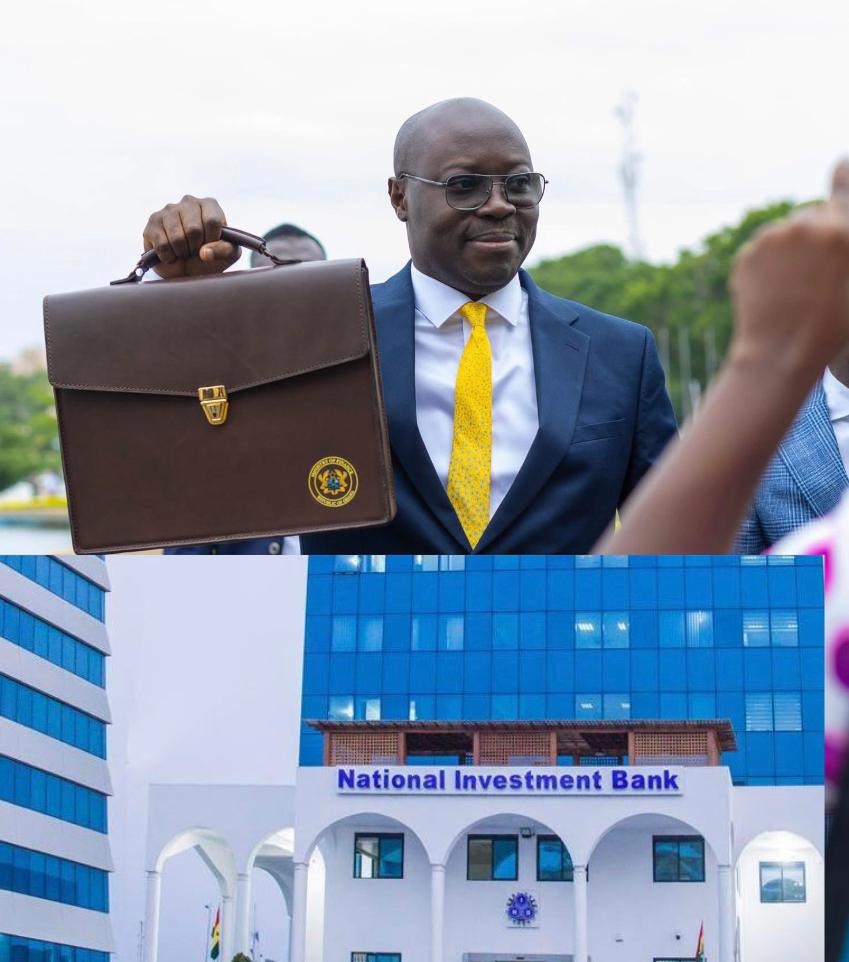Ghana’s Finance Minister, Dr. Cassiel Ato Forson, has boldly declared that the National Investment Bank (NIB) is back, fully capitalized, and financially healthy.
Delivering the 2025 Mid-Year Budget Review to Parliament, Dr. Forson said the bank, once on the verge of collapse, has been successfully restructured and recapitalized under the leadership of President John Mahama and the NDC government.
“Mr. Speaker, NIB is back. NIB is now liquid. NIB is now safe. NIB is fully capitalized,” the Minister proclaimed to loud murmurs of approval in the chamber. He went on to assure depositors and the general public that the indigenous bank is now well-positioned for business.
Dr. Forson revealed that the government has implemented a bold and credible plan to save the struggling bank, which had a staggering capital adequacy ratio of -53.13% as of June 2024. According to him, this decline was the result of neglect under the previous administration, despite the injection of GH₵30.3 billion into the financial sector cleanup exercise.
Under the current government’s recapitalization plan, NIB has received a GH₵450 million cash injection, GH₵1.5 billion in bonds, and GH₵500 million worth of government shares in Nestlé Ghana Limited. These efforts, the Minister said, have transformed the bank’s capital adequacy ratio to a healthy 23% by May 2025, with a total paid-up capital now standing at GH₵3.4 billion.
“In taking these steps, we have preserved depositors’ funds of GH₵6.4 billion and saved over 900 direct jobs at NIB,” Dr. Forson emphasized.
The finance minister contrasted the government’s strategy with that of its predecessor, stating, “Unlike the previous administration, we chose to spend to save a bank, not collapse it.”
To ensure NIB’s long-term sustainability, the government has outlined a comprehensive restructuring plan aimed at strengthening corporate governance, risk management, transparency, and strategic decision-making. The plan also includes intentions to eventually list NIB on the Ghana Stock Exchange.
The recapitalization of NIB is one of several key initiatives highlighted in the government’s broader effort to stabilize and grow Ghana’s financial sector. Dr. Forson noted that while domestic liquidity drivers have shifted, foreign asset inflows have significantly supported monetary expansion and private sector credit.
With NIB now described as a “revitalized” and “indigenous Ghanaian bank,” the finance minister used the opportunity to encourage Ghanaians and businesses to patronize the bank, assuring them of its renewed stability and strategic direction.
“Mr. Speaker, this is not just about saving a bank. It’s about protecting jobs, safeguarding investments, and preserving national assets,” he concluded.
Ghana|Atinkaonline.com






